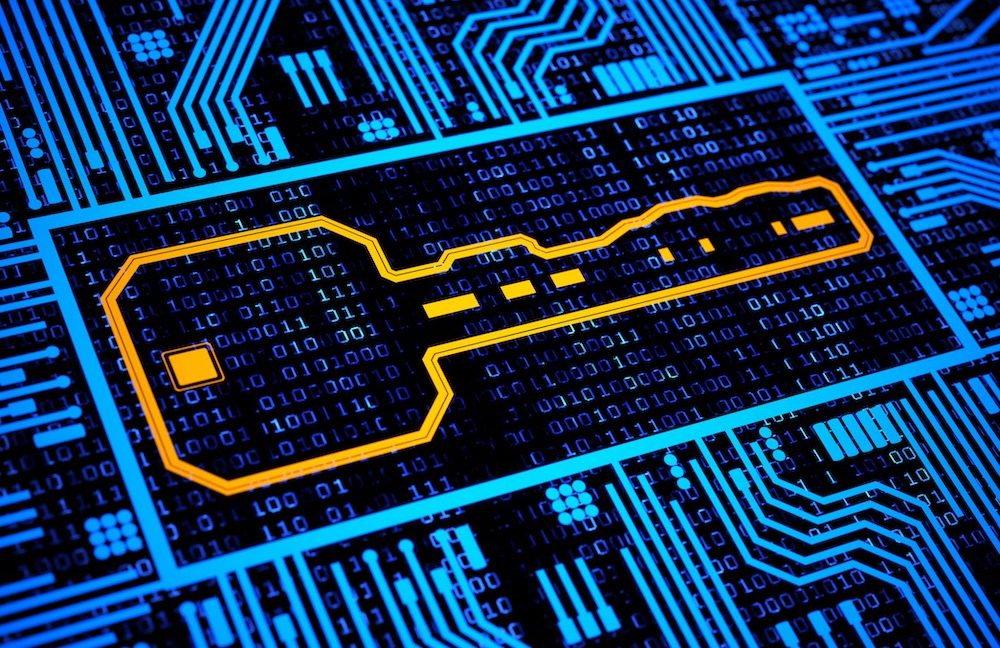As a reminder, current estimates are that quantum cracking of a single 2048-bit RSA key would require a computer with 20 million qubits running in superposition for about eight hours. For context, quantum computers maxed out at 433 qubits in 2022 and 1,000 qubits last year. (A qubit is a basic unit of quantum computing, analogous to the binary bit in classical computing. Comparisons between qubits in true quantum systems and quantum annealers aren’t uniform.) So even when quantum computing matures sufficiently to break vulnerable algorithms, it could take decades or longer before the majority of keys are cracked.
The upshot of this latest episode is that while quantum computing will almost undoubtedly topple many of the most widely used forms of encryption used today, that calamitous event won’t happen anytime soon. It’s important that industries and researchers move swiftly to devise quantum-resistant algorithms and implement them widely. At the same time, people should take steps not to get steamrolled by the PQC hype train.
If qbits double every year, we’re at 20 million in 15 years. Changing crypto takes a very long time on some systems. If we’re at ~20000 in 5 years, we better have usable post quantum in place to start mitigations.
But I’m not convinced yet, we’ll have those numbers then. Especially error free qbits…
If qbits double every year
And then we need to increase coherence time, which is 50ms for the current 433 qubits large chip. Error correction might work, but might not
Error correction does fix that problem but at the cost of increasing the number of qubits needed by a factor of 10x to 100x or so.
But who guarantees that ec will overcome decoherence, introduced by this number of qbits? Not a trivial question that nobody can answer for certain
I mean the known theory of quantum error correction already guarantees that as long as your physical qubits are of sufficient quality, you can overcome decoherence by trading quantity for quality.
It’s true that we’re not yet at the point where we can mass produce qubits of sufficient quality, but claiming that EC is not known to work is a weird way to phrase it at best.
It was shown this year for how many, 47 qbits to scale? How could you be certain this will stand for millions and billions?
Because the math checks out.
For a high level description, QEC works a bit like this:
10 qubits with a 1% error rate become 1 EC qubit with a 0.01% error rate.
You can scale this in two ways. First, you can simply have more and more EC qubits working together. Second, you can near the error correcting codes.
10 EC qubits with a 0.01% error rate become one double-EC qubit with a 0.0001% error rate.
You can repeat this indefinitely. The math works out.
The remaining difficulty is mass producing qubits with a sufficiently low error rate to get the EC party started.
Meanwhile research on error correcting codes continues to try to find more efficient codes.
While you describe the way how error correction works, there are other factors you fail to notice.
It is widely known, that for each physical qubit T2 time decreases when you place it among other. The ultimate question here is: when you add qubits, could you overcome this decoherence with EC or not.
Say you want to build a QC with 1000 logical qubits and you want to be sure that the error rate doesn’t exceed 0.01% after 1 second. You assemble it, and it turns out that you have 0.1%. You choose to use some simple code, say 7,1 and now you have to assemble a 7000 chip to execute 1000 qubits logic. You again assemble it and the error rate is higher now (due to decoherence and crosstalk). But the question is how much higher? If it’s lower than your EC efficiency then you just drop a few more qubits, use 15,2 code and you are good to go. But what if no?
And everyone thinks about real time implications, what about historical ? Seems pretty likely that the NSA has been storing an appreciable fraction of the internet for a long damn while. Come Q-Day that all gets opened and searchable. What would Trump do ?
Nothing, he will be dead. Anyone that NSA would bother to use their new and expensive quantum machines on will be an organization that should know better than to be compromised by decades old secrets getting out.
You’re no fun, orange turnip was merely an example of a bad actor getting control (going Reagan would be confusingly amusing) and it’s not about anyone in particular, more so the entire worlds’ dirty laundry out to dry
Just because you can break RSA doesn’t mean you instantly get access to all private databases.
Encryption by itself isn’t important. You know all those big company data leaks that seem to happen every month? That data was very likely encrypted. But it doesn’t matter because when you control a computer, you can see the encryption keys being used and decrypt whatever is stored.
Man, quantum computers has been about-to-break-encryption since the 90s. The hype never ends, just a new crop of people first hear it then figure out it’s bullshit.
Not to mention we already have quantum-computer-resistant cryptography.
I just lie in every encrypted message I send so even when they crack it they won’t know the truth
There’s an idea for a crypto. You send a message, another message (or 100000) gets created by ai I guess, and based on some predetermined hash the retriever must calculate which is correct, the lie/other message is discarded.
I’ll call it Never tell a lie, or NTL
That’s just a one-time pad with extra steps.
The quantum people won’t know that!
But isn’t the point that we just need to stay ahead of it. Surely encryption used in the 90s could be broken by a quantum computer today?
I do not know of any such occurrence. I would like to know about it
It seems the RSA-155 (512 bit) encryption commonly used in the 90s was broken in 1999, no quantum needed (due to it being based on primes).
Though from what I can search up, reddit users from 10 years ago were confident a 128 bit modern algorithm (e.g. AES) would never be able to be brute forced, even by quantum computers.
I dunno, sometimes I wonder if not everyone on the internet is an expert.
It’s like nuclear fusion, always just around the corner…
Didn’t you hear, they’ve almost succeeded at nuclear fusion, almost 90 whole seconds of stable fusion, any day now
I don’t know where the 20 million comes from Estimates are 4000 qbits for RSA 2028.
1000 qubits? Where? Last time I checked it was 50 qubits for 200ms
Ok, I decided to dive into it today again and look what I’ve found:
-
They still demonstrate supremacy to each other proving that their setup couldn’t be simulated. These 433 and 1000 qubit processors are good only for one purpose: to simulate itself.
-
Photonic QC still estimates hafnian billions times faster; if only this mathematical structure appeared to have any practical meaning
-
They demonstrated that toric codes might be effective
-
Just parroting stuff I heard at black hat, but aside from all the above don’t we first need to have millions of logical qubits? I believe the numbers people advertise now are just physical qubits.






